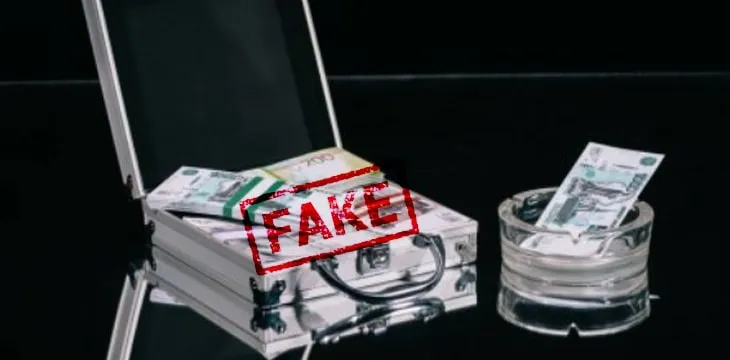|
Getting your Trinity Audio player ready...
|
Russian police busted a highly-organized crime ring that sold over $13 million in fake cash over the darknet. The criminals allegedly used darknet marketplace Hydra to connect with the buyers, accepting payment only in digital currencies. Police have been investigating the outfit since 2019 when they noticed a rise in the use of high-quality fake notes.
The operation included several dozen people, Russian business newspaper Kommersant has revealed. Citing sources at the Ministry of Internal Affairs, which runs the police service, it claimed that the operation was based in Nizhny Novgorod, a city in western Russia. The operation has been ongoing since last year, when the first high-quality fake notes were noticed.
This highly-organized operation relied on secrecy, with the members only communicating through Hydra, the largest Russian darknet market. Hydra is only accessible via the Tor browser and hides the users’ IP addresses. The users only knew each other by their online nicknames. This made the participants quite difficult to trace for the police.
Once the buyer made the payment in digital currencies, the money printers would dispatch the fake notes through a transport company to Moscow. Accomplices in Moscow would then receive the notes and place them in strategic hiding spots in a local deserted park. They would send the coordinates to the customers who would then come and pick their fake notes.
The criminals sold the fake Russian rubles for a percentage of their face value. The operation has been ongoing for close to a year now, the police say. In that time, they have completed over 3,000 transactions on Hydra and printed over a billion rubles ($13.2 million).
The police have already arrested three leaders of the crime ring—Oleg Efimov, Andrei Skvortsov and Ivan Aferov. During the arrest, the police also seized two sets of printing equipment, mock-ups of bank notes, a laminator, laptops and threads for gluing emblems into banknotes and blanks. The three pleaded guilty for their crimes, according to reports. Police also arrested other accomplices, including a 25-year-old woman from Moscow who created and maintained the darknet marketplace.
Hydra has a history with digital currencies. In December 2019, the marketplace launched a token sale, seeking to raise $146 million to expand its business. Each token, known as Eternos, was going for $100 and entitled the holder to the darknet marketplace’s profits. Hydra claimed that it wanted to build a global darknet marketplace with a built-in messaging service, digital currency exchange, anonymous browser and more.

 09-14-2025
09-14-2025 





